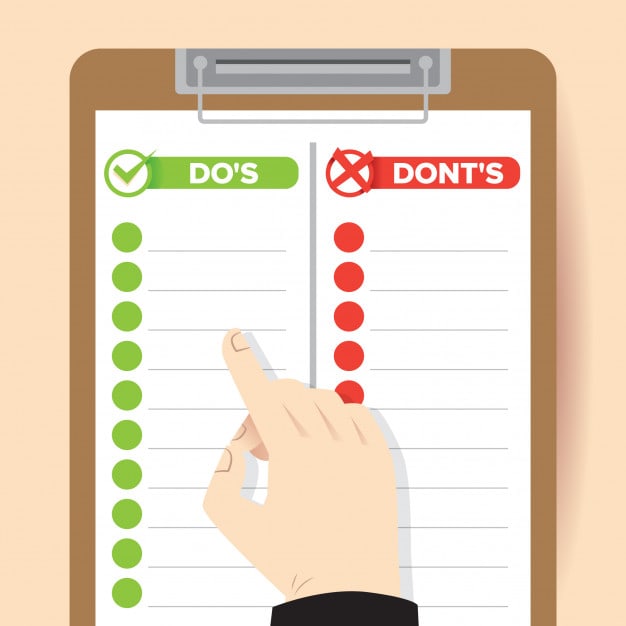Career gaps or employment gaps are particular time-period when a person who is currently seeking a job, was unemployed. This period can range from months to years.
Most of us have had or will have to take time off from work, either by choice or, well, by fate.
People choose to take time off because they want to go back to school and attend classes full time, raise their kids, or simply because they have to travel or shift to another place. On the other hand, a person may be fired or laid off without any job for a prolonged period, which will eventually result in an employment gap.
Have you got a career gap? Having it on your CV might indicate a red flag, but it does not always have to be negative.
In most of the cases, it has been observed that career gaps usually increase the value of an employee.
We cannot site a possible reason behind it, though. In this article, you will get to know how to turn your career gaps into positive traits and what you should do if you are looking forward to taking a break from your job.
Table of Contents
Types of Career Gaps
Career gaps are often known as a sabbatical, career break, mini-retirement, gap year, and so on.
Each of the terms might be different from the other, but all of them mean or denote a similar thing. Simply put, a career gap is a period that you spent away from work either because of some changes in lifestyle or you wanted to pursue some other interest.
Career gaps can be categorized as
1. Travel Sabbatical
When you plan to travel away from where you stay or away from the convenience of your workplace
Skills developed: Cultural competence, communication, time management, language skills, adaptability.
When you choose to stay at a place away from your native home, you need to develop your communication skills, learn the native language of that place, and often need to adjust to changing time zones.
2. Maternity Leave
We get it; you needed more maternity leave. It’s worse if you didn’t get it all. It’s okay, just tell your potential employers when and why you took a maternity leave. Tell them you can start working again.
Skills developed: Time management.
Kid me not; raising a human baby requires a lot of patience, time, management skills, and whatnot, ugh! Institutions and organizations that do not facilitate their employees with paid maternity leaves are the institutional embodiments of insensitivity. I mean, how can you not?
3. Redundancy, layoff, and dismissal
If you were terminated or fired from your job, elaborate the reason behind it. Do not blame the company or your boss, and do not consider your interview as a platform to vent your frustrations and anger.
We know that addressing or speaking about your termination is difficult. Hence, try to talk it out during an interview instead of broadly elaborating on the reason for your CV. For instance, you had an accident and took some time off.
By the time you were about to resume your work, the company had to be shut down, and you were laid off. Try to convince your potential employer that you are outstanding now and tell them about the skills that you have developed out of it.
Skills Developed: Adaptability, exploring new skills.
You might choose to learn a foreign language, do an additional course on related subjects or you can even pursue your passion and develop and nurture it to make a living out of it.
4. Medical illness
You might have been seriously ill, diagnosed with a life-threatening disease, or had a fatal injury and took some time off.
You do not have to broadly elaborate that, just let the company know why you took the leave and tell them that you are beautiful enough to resume your work or start working again.
Skills Developed: Priorities (you know what is more important) and perspective.
Often people recovering from a severe illness develop a better perspective towards life, become optimistic and determinant too.
5. Caring Responsibilities
You might have taken time off to care for your old parents or in-laws or any sick member of your family. You might as well have been raising your kid.
Skills Developed: Introspection, problem-solving skills, empathy.
These are some genuine reasons and should not be held against you. Relaunch expert Carol Fishman Cohen took an employment gap of 11 years to raise her children, and now she’s one of the most inspiring people who is helping others in resuming their work after a long career gap.
6. Volunteering
It sometimes happens that you join a church or a non-profit organization to volunteer and hence, take your time off from work.
Skills Developed: Project Management, Teamwork, and Empathy.
While volunteering, you learn the value of teamwork; you develop communication skills, empathize with people, develop a positive mindset, and so on.
Note: You must take note of the skills developed and analyze your progression. You can later add these skills to your resume, and honestly, your employer will be quite impressed.
How can you explain career gaps during the interview?
Explaining career gaps is difficult, but you will have to do it anyway. Prepare and decide which are the reasons that are shareable and which aren’t. A bit of sugar-coating and white lies are fine, but try to be honest.
Here is a list of good and acceptable reasons:
- Raise a kid
- Take care of a sick member of your family
- Medical illness or health issues
- Take time off from work to relocate or find a suitable job for yourself in a new place
- Pursuing your passion
- Go back to school to attend classes full time
- Traveling to other places
- You were trying to start your business but failed.
- You were laid off and had trouble finding a job.
After preparing your reason, you need to follow these steps:
- Explain it in brief. You need to include all the necessary and formal details, but do not ever start narrating your autobiography and your struggles at one go.
- Tell them that you are fully prepared for the job that you are looking for. For instance, if you were dismissed from your previous job, just let your potential employers know that your previous job was different from the one you have applied for presently. Tell them that you have realized and rediscovered your aims and goals in life during your career gap. Tell them that the job you have applied for matches these goals and aspirations.
- If you took time off due to health issues, convince your potential employers that you are completely fine now.
- Tell them about your interests that go hand in hand with the job position. Convince them with necessary examples.
How can you explain career gaps on your resume?
- Consider mentioning years instead of months.
- If your career gaps are frequent and more prolonged than usual, provide a brief note with the list of reasons on your resume. You need to add your previous job positions along with the job period (mention the date when you were hired, and the date when you left/took time off) and the reason behind the gap.
- Make the necessary changes to your LinkedIn profile as well.
- The best option is to write a cover letter. You need to mention everything in detail so that the hiring manager is more focused on your career gap. Let them know the actual reasons instead of letting them assume things.
- Send out at least ten resumes. If you do not get a response from any of them, you need to change or update your resumes or cover letters.
Dos and Don’ts of Career Gaps
1. Be honest
Hiring managers will find out if you are hiding something. Be honest, and do not hide any information or related dates.
The first page of your resume must include your job history arranged in chronological order. Include company names, job titles, key responsibilities, and dates of employment.
2. Prepare yourself like a candidate who is in demand.
While explaining your current employment gap, it must sound like you have been quite selective regarding job positions. Tell the hiring manager that you have been looking for a long-term job that matches your interests.
If you have been hunting for jobs, do not tell them that you haven’t had a single interview in the last few months.
However, if it is related to health issues, travel, or family issues, not having attended an interview is fine. You can be honest with that.
3. Do not apologize
Own it up. Do not shy away. Be confident and honest. Tell the firm about your priorities then. Convince them as to why you were looking for a transition. Do not ever leave gaps unexplained; it raises suspicion.
4. Ask for short-term opportunities.
If the hiring manager says that they are quite impressed but cannot risk hiring you since you had a long career gap, ask them for short-term opportunities.
You might as well ask them to shoulder you with the responsibilities of someone who is on leave so that the company can evaluate you based on the quality of your work.
5. Make your gaps relevant.
Turn your gaps in positive skills. Mention in detail about the skills that you have developed. Tell them that you’ve engaged in productive and developmental activities. (Refer to the types of gaps and the skills developed).
What to do if you’re planning for a career gap?
- You need to overcome your preconceptions and finally make a decision.
- Read about how you can make a comeback or resume your work after a career gap.
- Read about interviews, prepare yourself, engage in productive activities, and watch inspiring videos of young entrepreneurs speaking about career gaps and their journey through it.
- Keep a check on referrals and job positions that match your interest.
- Most importantly, have a positive mindset.
Is taking a gap a long-term disadvantage?
You might be surprised, but it is otherwise. Dismissal or being fired is a disadvantage, but if you make good use of it, then it is definitely worth the appreciation.
Virgin launched a policy in 2014 which would allow its employees to take an unlimited holiday. The BBC in the UK encourages discussions on career gaps ranging from a period of three months to three years.
Whatever it is, a career gap is a brilliant opportunity to develop skills and start again.
Final Words!
Do not be apologetic about your career gaps. Companies that have a disdain for gaps are not worth your time.
Prepare yourself in such a way that the hiring manager appreciates your decision to quit your previous job.
Now, on the concluding note, we hope you would have understood the right ways of handling your career gaps and projecting its positive sides. Do you also have career gaps and want to share the reason with us? Then feel free to share that with us in the comment section.
In case you have some instances of any interview wherein discussion of your career gaps occurred, then kindly share how you handled it, and how was the response of your recruiting manager with us.
Liked this post? Check out the complete series on Careers

